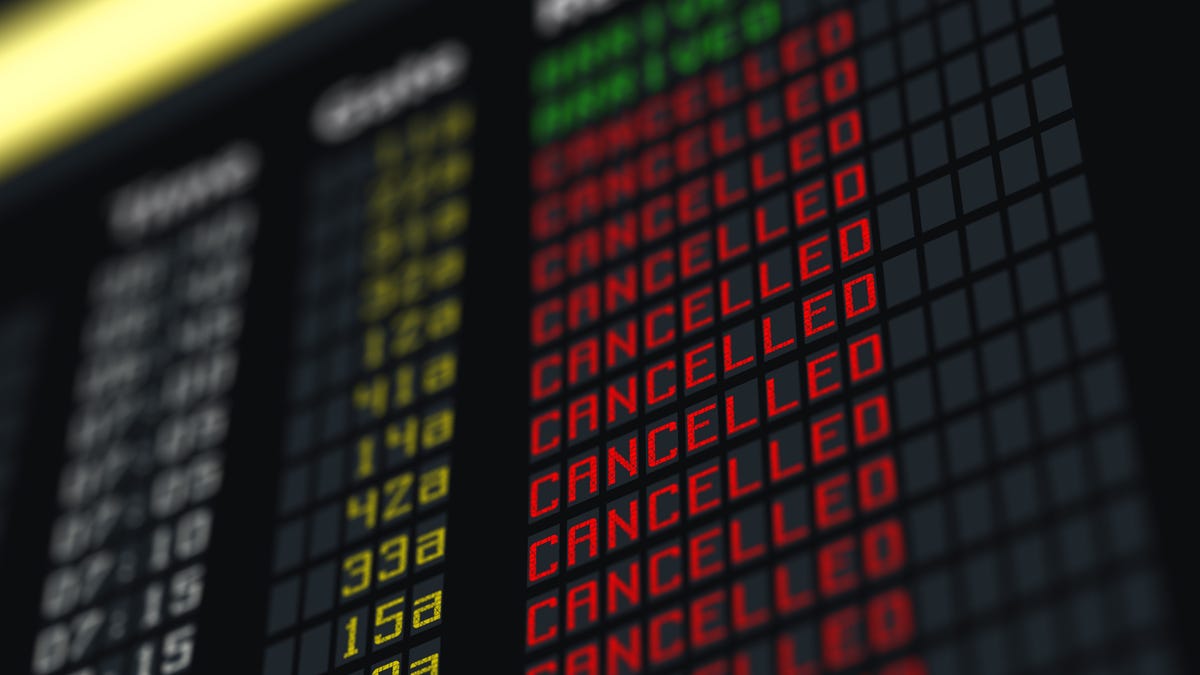How to Find Out If Your Flight Is Canceled Before It's Officially Announced - 4 minutes read

Even before the COVID-19 pandemic upended air travel, there were still plenty of opportunities for inconvenience—like when your flight was delayed or canceled (or that one decent food option at the airport was closed when you needed it the most). But with so much rebooking over the past year, you may have a flight coming up in the next few weeks or months that you are no longer able to take (remember when people thought we’d be up and functioning as a normal society by now?).
Instead of waiting for the airline to send you a notification about your future flight being canceled, Nick Ewan at The Points Guy just shared a method for finding that information out ahead of time—even before the airline, in some cases. Here’s how to do that, and when it might come in handy.
How to check if your flight is canceled
Ewan starts out by recounting his family’s plans to travel to Asia in May 2020 (which, of course, never came to fruition, but has been rebooked for May 2021) as a way of explaining why this technique is useful. Feel free to read that part, but we’ll skip ahead to the hack.
While major airlines have been adjusting (and readjusting) routes and schedules for nearly a year, it’s still an ongoing process. In fact, flight schedules aren’t being finalized until weeks before departure, Ewan notes, meaning that you may have upcoming flights that appear normal when you check your booking, but will never actually take off. So here’s what he recommends doing:
Search for the flight as if you were going to book a new ticket. If it doesn’t show up, that’s a clear indication that it will be canceled in the days (or weeks) to come.
Now, there’s always the chance that [a] flight could simply be sold out (and thus not appearing in the search results), but with international travel demand virtually nonexistent, that’s almost certainly not the case.
One caveat: it is possible for the airline to reinstate a canceled flight—though it’s uncommon.
How is this information useful?
As Ewan points out, this isn’t necessarily a strategy for saving money. First of all, with all the new—and significantly more flexible—airline policies that have sprung up since the beginning of the pandemic, if you need or want to cancel or change your flight, you can easily do that ahead of time in exchange for rebooking on another flight, or receiving travel vouchers.
And, in situations where you want to completely cancel the flight, you’re better off waiting until closer to your travel date to see if the airline cancels things on their end. Ewan says that this is because if you make the first move and cancel your flight before the airline, you’ll probably be left with a voucher instead of a full refund (in case that makes a difference for you).
But what this information is useful for, Ewan writes, is peace of mind. Here’s how that’s relevant to his rebooked trip to Asia:
I know that we’re not going to Asia this May, and I intend to cancel both our outbound and our return flight. Knowing with near certainty that our Japan Airlines itinerary will be undergoing a major change in the next several weeks tells me that I shouldn’t rush to cancel. Doing so would leave me with a less-flexible travel credit.
I’d much rather get my miles back and get a full refund of the taxes and fees. After all, there’s no guarantee that our trip will happen in 2022.
But this trick can come in handy even without a pandemic—as life can change between when you book a trip and actually take it, and it gives you a better chance of getting a refund.
Source: Lifehacker.com
Powered by NewsAPI.org